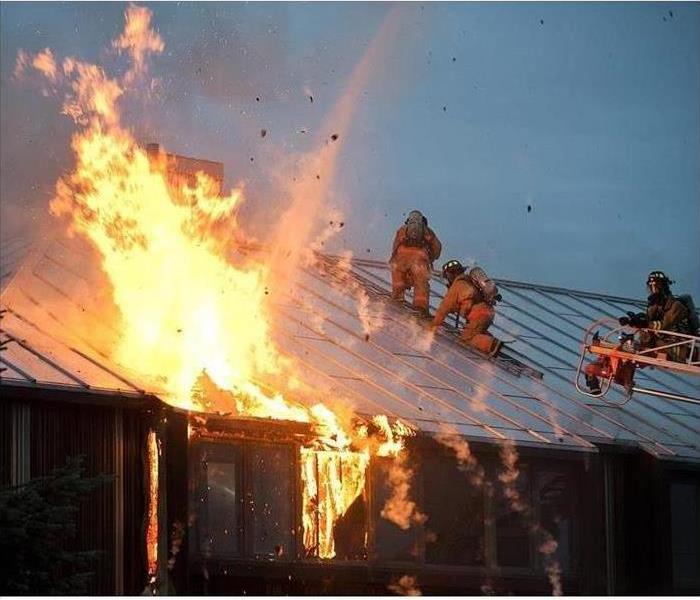14 Bad Habits That Could Burn Down Your Home
2/16/2022 (Permalink)
As busy homeowners, fire prevention has taken a back seat on our list of priorities creating bad habits. House fires are becoming more and more frequent due to common bad habits that can quickly become a fire hazard. Without you realizing it, these potential fire starters are hiding in plain sight throughout your home.
For instance forgetting to take the time to change a dull light bulb or leaving an abundant amount of lint in your dryer. Our mind disguises these simple tasks as harmless, when in reality, it can become quite devastating.
1. Piling up dirty, oily rags - If left sitting, these rags could oxidize and spontaneously combust.
2. Misusing electric blankets - If heat starts to buildup or the coils bend the wrong way, the electrical blanket can catch on fire.
3. Neglecting appliance recalls - Last year defective appliances caused 150,000 fires.
4. Lingering dryer lint - The combination of lint buildup and excessive heat creates fire.
5. Letting your laptop overheat - If the cooling vent airflow is restricted, the laptop can overheat and catch on fire.
6. Choosing the wattage - Using the wrong wattage of a light bulb can initiate an electrical fire.
7. Using too many extension cords - This can create an overload leading to a short circuit, which produces a fire.
8. Performing DIYs you’re not qualified to do - Electrical wiring, plumbing, and HVAC mistakes can easily ignite fires.
9. Disregarding dust - Dust buildup around electronics and electronic sockets can become a fire hazard.
10. Storing batteries improperly - If the battery’s terminals make contact with other metals (screws, papers clips, etc.), it can short out the battery producing enough heat to possibly catch flammable material on fire.
11. Ignoring mice or other rodents - These animals are known for chewing on electrical wires, which removes the sheathing and exposes the heated wiring. This can lead to sparking surrounding surfaces caused by short circuiting, resulting in igniting a fire.
12. Forgetting the chimney sweep - Chimney fires are commonly cause by buildup of creosote, dead animals (usually birds or raccoons), and cracked mortar.
13. Overlooking the range hood - Grease and other cooking buildup that’s left on the vent hood filter can drip down on the stovetop, catching the fallen material on fire.
14. Arranging furniture unwisely - Furniture can unexpectedly ignite, if you position it by a source of heating such as a fireplace, wood stove, or space heater.

 24/7 Emergency Service
24/7 Emergency Service
